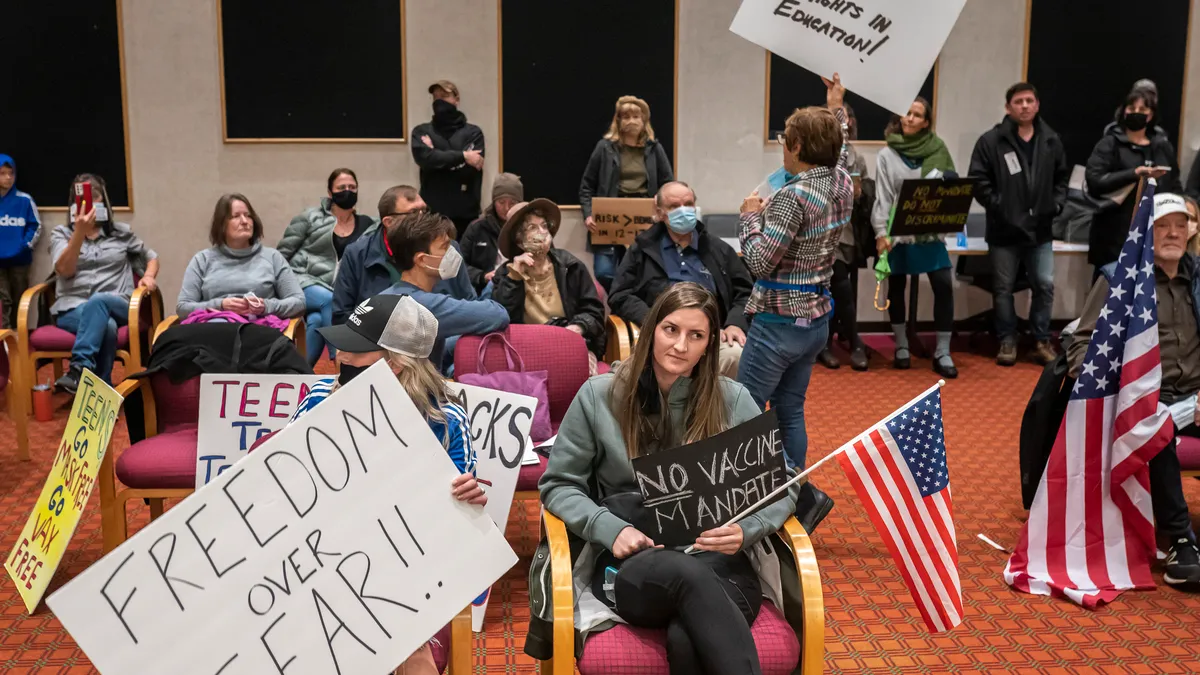Dive Brief:
- The Every Student Succeeds Act’s implementation timeline means recently appointed state education chiefs and inexperienced legislative committee chairs have a lot of responsibility right out of the gate.
- An Education Week analysis found 53% of committee chairs nationwide have no outside experience in K-12 schools or policy, seven states have new education committee chairs in both chambers of the state legislature, and 18 states have new education committee chairs in one chamber.
- Among state chiefs, 10 out of 51 have no classroom experience, 14 have been in office for one year or less, and another 22 have been in office for between one and two years, prompting the National Conference of State Legislatures and the Council of Chief State Schools Officers to hold Education Policy 101 sessions to get new leaders up to speed.
Dive Insight:
The Every Student Succeeds Act, in many ways, was a severe backlash to the tight hold the last two presidents had over K-12 education policy. Sending an enormous amount of power back to the states, ESSA is somewhat of a make-or-break moment for local control. Whether states properly hold districts accountable in the years to come will be a major determinant in whether the next authorization of the Elementary and Secondary Education Act returns power to the federal government or keeps it at the state level.
Beyond simply a lack of experience, however, state education leaders are facing a good deal of uncertainty when it comes to ESSA implementation. The changeover at the federal level means the regulations published by the Obama administration — on which state leaders based early plans for ESSA implementation — may not hold.













